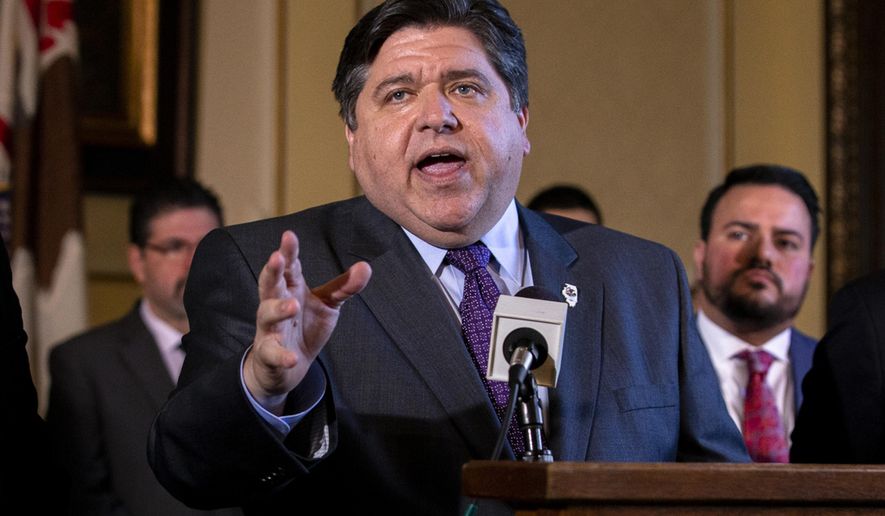An Army Special Forces veteran who was deported last year for drug convictions was allowed back into the U.S. on a two-week parole to make his case for earning citizenship, his backers announced Monday.
Miguel Perez Jr. became a cause celebre for immigrant rights activists as he battled his deportation, with members of Congress stepping in to say his military service — and the post-traumatic stress disorder he says contributed to his criminal past — should have prevented his ouster.
U.S. Immigration and Customs Enforcement rejected those pleas and deported him in March 2018, but Illinois Gov. J.B. Pritzker last month issued a pardon for Mr. Perez’s crime, and American border officials allowed him into the U.S. on Monday.
Customs and Border Protection “has granted him parole for 14 days so that he may attend his citizenship appointment scheduled for Wednesday,” Sara Walker, an immigrant rights activist, announced in a statement.
Mr. Perez is the latest in a string of migrants who have had their immigration cases bolstered by pardons from Democratic governors, who say they are trying to blunt the sharpest edges of President Trump’s illegal immigration crackdown.
Mr. Perez was born in Mexico and came to the U.S. as a youth. He had legal status as a green card holder and could have applied for citizenship in the 1990s but didn’t do so.
He joined the U.S. Army and was deployed to Afghanistan where he developed the PTSD he says contributed to his later criminal behavior back home. He was charged with manufacturing cocaine, pleaded guilty to one drug trafficking charge and served more than seven years in prison.
The drug crime negated his legal status in the U.S. Upon his release in 2016, he was turned over to ICE, which began deportation proceedings against him. He battled for a year and a half, enlisting support of high-powered congressional Democrats, but ICE rejected his plea.
Now he’s rushing to try to win citizenship, with the drug conviction erased from his record. His application will be heard by U.S. Citizenship and Immigration Services.
Mr. Perez’s lawyer didn’t respond to a message seeking comment about his client’s chances.
Matthew O’Brien, research director at the Federation for American Immigration Reform and a former USCIS official, said those applying for naturalization are required to show good moral character and a criminal record is a severe black mark.
He said the agency has generally given a pass to applicants who received a pardon, even though the agency’s own regulations say applicants are supposed to prove they rehabilitated themselves well before they apply for citizenship.
He said it will be interesting to see whether the agency, now under a new hard-charging acting director in Ken Cuccinelli, will take a more skeptical look.
“I suspect that the Trump administration, under acting Director Cuccinelli’s leadership, will require that the showings mandated by the regulation are actually made, and will not hesitate to deny naturalization if those showings cannot be made,” Mr. O’Brien said.
More broadly, Mr. O’Brien said Mr. Perez’s situation raises questions about how much military service should be used as a shield in immigration.
He said immigration officials should take into account PTSD developed during the military that could play a role in later criminal activities and drug use. But it’s not an automatic excuse.
“If you’re out of the military and have consistently engaged in a pattern of criminal behavior and haven’t bothered to become a citizen, I don’t believe that should be a catch-all to excuse your criminal behavior,” Mr. O’Brien said.
Mr. Perez says his PTSD did contribute to his criminal behavior.
He said he received treatment in prison and was planning to use Veterans Affairs clinics after he was released — but when he was deported to Mexico that option disappeared.
• Stephen Dinan can be reached at sdinan@washingtontimes.com.




Please read our comment policy before commenting.